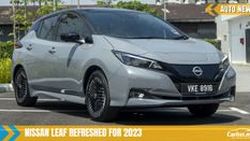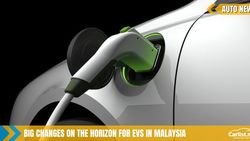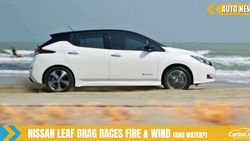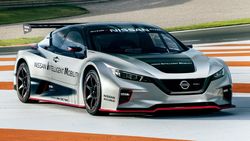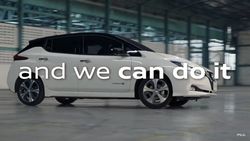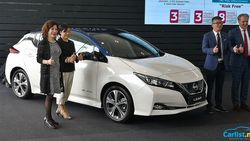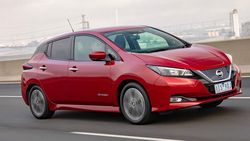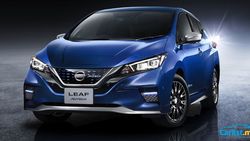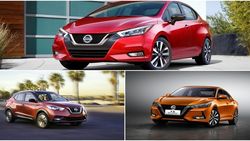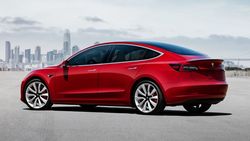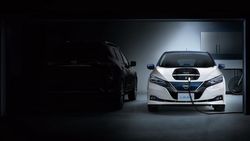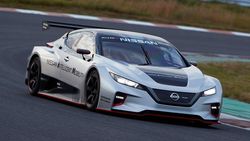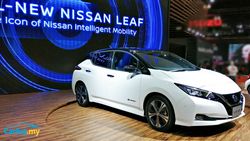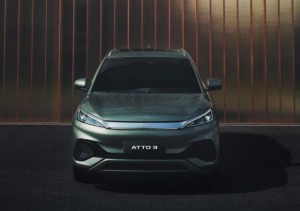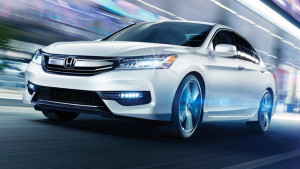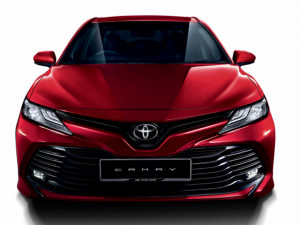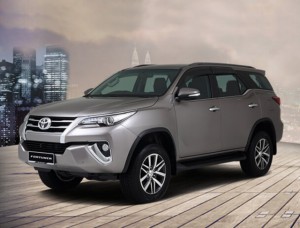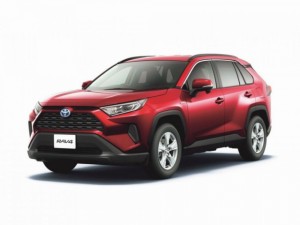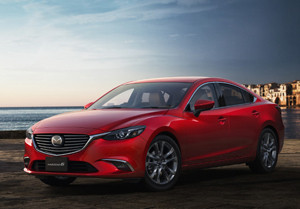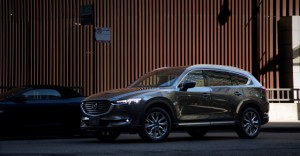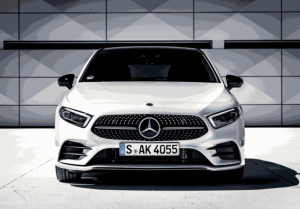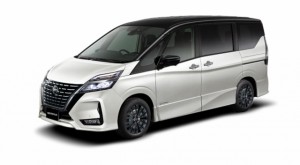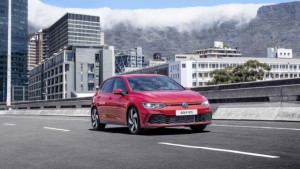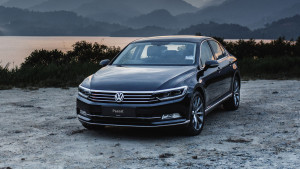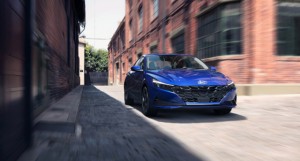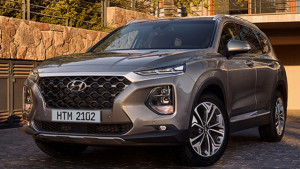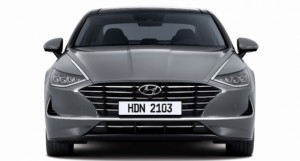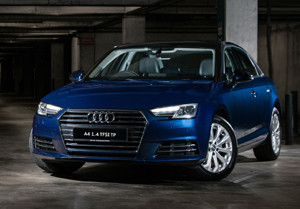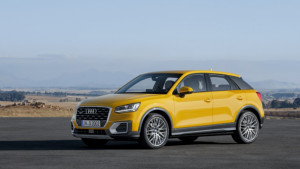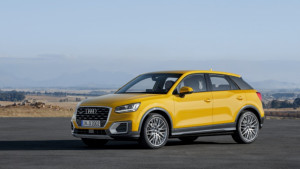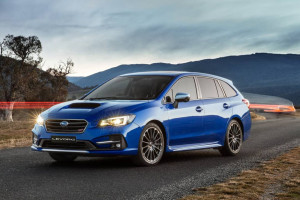Overview
Nissan Leaf 2023 Review
In this day and age, most established manufacturers will have two important cars in their line-up or history. The first is some kind of performance model, designed to be a halo car of sorts that attracts enthusiasts and functions as proof of concept that they can build something incredibly quick and competent – if the customer is willing to pay for it, that is.
The other car that they will usually have, or at least have had in the past, is something that pushes the boundaries of eco-friendliness and efficiency. It may seem like these two products are at either end of a spectrum, but the reality is that they both represent the best of what a company is capable of, just with different targets. The engineering is complex in either case, and the results just as important.
For Nissan, their performance halo car is the Nissan GT-R R35. But in the case of their eco-friendly ultra-green car, that would be the Nissan Leaf (or LEAF as it’s stylized at times). Nissan may have dabbled with electrification of a number of their models, but it’s the Nissan Leaf that represents the pinnacle of green engineering.
The Leaf that you see here today is the second generation of its kind, but even with the first generation model it was already sitting on a dedicated platform instead of something repurposed from another Nissan product. It also happened to be the first global electric Nissan product, a distinction that’s important as it isn’t Nissan’s first electric car.
From 2011 to 2017, the first generation Nissan Leaf was sold to the masses with mixed reception, although this is understandable as back then electric cars hadn’t quite built up the appeal that they have today. It’s also important to remember that even today most countries are struggling with an adequate charging network, much less ten years ago.
Unlike most other models which follow rough three to five year product update cycles (a mid-facelift before a generational change), the Nissan Leaf received continuous technological updates every year with its battery capacity and range growing from 24 kWh and 117 kilometres in 2011 to 30 kWh and 172 kilometres by 2017 respectively. With propulsion delivered by a singular 107 hp and 280 Nm rated motor, it was far from quick.
Come 2018, the world received the second generation Nissan Leaf. While based on the same platform as the first, both the components and the styling were a major departure as Nissan decided it was time for what was effectively a full model change. It was launched globally in a singular variant, with a second variant being added in 2019 boasting more power and a larger battery too. Over the last 10 years, Nissan has produced and sold over 500,000 units of the Nissan Leaf.
Nissan Leaf 2023 Specifications
As mentioned before, there are two powertrain and battery variants of the Nissan Leaf, but in Malaysia we only receive the regular version which means we get a 40 kWh lithium-ion battery delivering juice to a 147 hp synchronous electric motor driving the front wheels. 320 Nm of torque is at your disposal from idle, giving you aggressive and instant acceleration from a dead stop.
There are various drive modes that you get to choose from as you drive your Leaf around. D mode is going to be the most common and natural feeling, B mode provide more aggressive regenerative braking, as do their respective ECO and B-ECO modes that help you distribute power at a more metered rate. On top of all that, there’s the e-Pedal mode.
The e-Pedal mode is something that isn’t necessarily unique to the Nissan Leaf, but it is something that they’ve programmed in as a drive characteristic that can only be done with electric cars. Like all electric cars, once you cut power to the electric motor you will experience fairly aggressive regenerative braking that slows you down almost as hard as if you were to get on the brakes yourself.
With most electric cars, the programming is such that the motor doesn’t go into its full regenerative mode unless you specifically select it to, or you start braking manually. With the e-Pedal mode, Nissan has essentially programmed it so that you can control the speed of your car with just the accelerator, maintaining slight pressure to keep the car rolling and coming off the pedal to brake aggressively through regenerative braking.
Overall the chassis is pretty par for the course, with an independent strut front design and a torsion beam rear – not the most complex, though definitely something that improves packaging and helps to keep the relative costs low.
In terms of dimensions, the Nissan Leaf comes in at 4,480 mm long, 1650 mm tall, and 1,790 mm wide. It has a wheelbase of 2,690 mm – fairly impressive, though it doesn’t quite have the interior space of other vehicles that have a similar wheelbase.
Nissan Leaf 2023 Exterior
Despite sitting on the same platform as the first generation model, the new Nissan Leaf looks completely different from the outside, bearing sharp angular lines that mirror that of Nissan’s most current products overseas. LED daytime running lights and headlights are present, and the wheels are 17-inch diamond-cut alloy pieces in the Turbine design.
Nissan Leaf 2023 Interior
The inside of the Nissan Leaf is a pretty minimalist place. Dark tones surround you with a simple dashboard layout – the instrument cluster front and centre for the driver, and a simple infotainment system sitting above the centre console. The seat material is leather Alcantara, and the rear gets a tonneau cover for the boot.
Nissan Leaf 2023 Safety Features
Thankfully, the Nissan Leaf comes equipped with advanced safety systems and the Nissan Safety Shield 360. The latter includes two front airbags, two side airbags, and two full-length curtain airbags, as well as intelligent trace control (cornering), intelligent ride control (comfort), and intelligent driver alertness (keeping you focused).
On the advanced end of things you have autonomous emergency braking and forward collision warning, as well as a 360-degree bird’s-eye view monitor known as the Intelligent Around View Monitor that can also detect moving objects.
Nissan Leaf 2023 Strengths & Weakness
There are two major obstacles when it comes to electric vehicle ownership in Malaysia. The first is that we don’t have a very good, or fast, charging network across the country. There’s a decent number of chargers around but they’re very much behind the rest of the world in terms of speed of charging, and these charging outlets are usually occupied by hybrid electric vehicles.
The second issue is that electric vehicles are incredibly expensive here – at least if you look at the options people are talking about the most. The Porsche Taycan and the Tesla Model S are far out of reach for your average consumer, being basically beyond what your average German mid-sized luxury sedan would cost. The Nissan Leaf is a nice, more mass market alternative to these options for those who want to go green, but can’t afford a car that costs as much as a house.
Even so, the Nissan Leaf isn’t the cheapest thing to take ownership of. It’s true that maintenance and running costs even the price difference out over the years, but ultimately it’s a large financial commitment and for the money one could get a much roomier, much larger D-segment sedan. There’s also the fact that the Nissan Leaf isn’t as modern or futuristic on the inside as other products that are currently available, being somewhat stuck in Nissan’s older architecture.
With all of that being said, there is still a lot you can fall in love with when you drive an electric car. The absolutely silent operation, the incredible torque and acceleration from a standstill, and just the attention it gets when you’re out ad about around town – it’s akin to driving something exotic, loud, and sporty, but done so with total eco consciousness and elegance.
Nissan Leaf 2023 Price
The singular variant of the Nissan Leaf on offer in Malaysia can be yours for the price of RM 181,263, with the current sales tax exemptions in place. Alternatively you can subscribe to the Nissan Leaf in a leasing-esque program for RM 2,500 over a two year contract, and all of this is inclusive of the Wall Box Charger necessary for faster home charging.
Nissan Leaf 2023 Features
Keyless entry and start, a five-inch infotainment display, and a seven-inch multi information display are what’s at your disposal when it comes to Nissan Leaf ownership. Automatic air conditioning is also included, as is a four-speaker sound system.
Nissan Leaf 2023 Fuel Consumption
There are no manufacturer quoted fuel consumption figures for the Nissan Leaf, but there has been a handy guide to the rough cost of running and the electricity consumption. Based on the NEDC test cycles used for determining efficiency and range, the estimate is that a full charge of the 40 kWh battery would cost you RM 20.64, and can take you roughly 311 kilometres depending on your driving style and conditions. This works out to just 7 sen a kilometre – if you were to compare this to RON95 prices, your average C segment sedan would manage roughly 16 kilometres per litre, or 12 sen a kilometre. The calculation for charging costs is based on the 301 to 600 kWh per month bracket.
Exclusive deals for you
Get March Offers from authorized dealers near you!
Key Details
- Body Type: Electric Vehicle (EV)
- Transmission: Automatic
- Fuel Type: electric
- Seat Capacity: 5
- Price: RM 181,263
Variations
From RM 181,263
Key Details
- Body Type: Electric Vehicle (EV)
- Transmission: Automatic
- Fuel Type: electric
- Seat Capacity: 5
- Price: RM 181,263
Reviews
-

Gokul
15 Sep 2020
Review: A Day With The Nissan Leaf
Power delivery was instant and smooth, and the brakes, despite having a little less pedal feel due to the nature of the regenerative system, didn’t really bother us as we got used to it in no time.
View full review
User Review of Nissan Leaf
Latest News
Similar cars
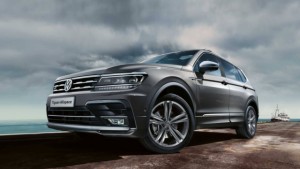
2022 Volkswagen Tiguan Allspace

Thank you!





